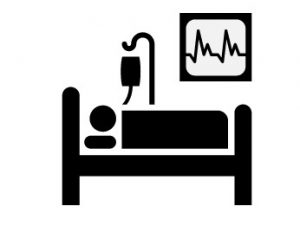- Taking the 20,000 foot view on my class
- Ending the semester, Lessons Learned (Part 4: Assessment)
- The Backwards Syllabus
- Low hanging fruit
- VoiceThread as Final Exam
- Teaching outside of the textbook and inside of the museum
- Digital Storytelling and Language Learning
- Blogging their scholarship
- Professional development: Simple, small-scale, and cost-effective
- Why I teach.
- Teaching Transparently: Scuba diving in 2nd year college Spanish
- Ending the semester, lessons learned (Part 3)
- Social Networking and Octegenarians
- Ending the semester, lessons learned (Part 2)
- Ending the semester, lessons learned (Part 1) … (of what will be many)
- Midterm assessment: My turn
- What’s under the hood: letting the outside in
- Informal Assessment, Disruption & Repair: Making change happen.
- Week 4: What? You don’t want me to write a paper?
- Welcome to the free fall
- Struggling with the Syllabus
- Imagining a college without grades
- Reflections from the Chair Swing, Moving into the Summer
- Syllabus Hacking with Bryan and the bava
- Well this is embarrassing
- There is no mystery in grading
- Using Can-Do statements for student self assessment
- El Proyecto Personal: Creating Conversations, Taking Risks, Learning to Prepare for the World Outside the Classroom
- Creating Radio in the Language Classroom
- Teaching Acceptance through Storytelling
- Improvisational teaching
- Fear, Motivation, Social Consciousness and Language Learning: the graph
- Using Radio Ambulante in the Spanish language classroom
- Creating, Uploading, Commenting and Sharing Audio via SoundCloud
- Notes I jotted to myself at the end of the term
- Student-centered, project-based learning…and a medical emergency
- Taking a tour of the HISP 205 class blog
- Let’s go bowling!
- Cooking with Drag Queens: Teaching Inclusion and Discovering the Limits of the Spanish Language
- Tune Up and a Smack down (part 2): The gringa returns to Bogotá
- A tune-up and a smack-down: The gringa returns to Bogotá
- Rethinking the role of the language textbook
- Our WordPress Class Blogging Tool: Now Yours Too
- A few shout outs and a woof
- Mid semester evaluation: Do it.
- What we did in class today, and no I can’t get you the notes.
- Searching for blogs in all the wrong places.
- Planning for HISP205-09… in Second Life
[images courtesy of The Noun Project]
Readers of LLU know that I have worked over the past years to develop student-centered curricula for language learning that ask students to answer two straight-forward and important questions: Why are you taking this class? and What do you want to accomplish in this language?
In the process of answering these questions, students have the opportunity to unpack (and with any luck, dump once and for all) a good deal of baggage about language learning that has followed them through the years. They often come to my class having been told that the preterite and the imperfect are really hard and confusing and therefore impossible to learn, that the only thing holding them back from being “fluent” is a complete mastery of the subjunctive, or that the only true way to learn a language is to cram list upon list of vocabulary into their brains (without any mention of the context in which they might use that vocabulary).
Indeed, over the years I have seen how the language learning process in some middle and high schools has made many of our very intelligent and capable college students feel as if they were incapable of learning a second language. They can quickly list the things they CAN’T do, but often have a very hard time seeing the many things they actually CAN do.
Student-centered, project-based learning, I have found, allows students to realize goals in a second language…goals that they might have previously believed were impossible. It doesn’t happen in a vacuum: this progress requires the guidance and support from their teacher as well as their peers (i.e. the classroom community).
~~~~~~~~~~~~~~~~~~~~~~~~~~~~~~~~~~~~~~~~~
Okay, so all of the above? That was something I had in draft form as part of a wrap-up of the semester post I was developing on my head. As a way to talk about some of the cool stuff we did and some of the spectacular screw-ups that happened as well. (You don’t learn anything new without screwing up, jes sayin’)
And then I got sick…really sick…and had to be hospitalized. And then more news: I would not be returning to work for 5 weeks in order to recuperate from surgery.
At first, everyone panicked…including me. What to do??? People in my department were generous and kind and offered to come in a teach the class or tell stories or whatever needed to be done. Would they like to know about current events in Spain? Should they watch a movie? How can we fill the time????
The last two weeks of a term is actually the worst time to introduce new information. People are tired, they are beginning their end-of-the-semester hyperventilating, and the end is in sight. The end of the semester, however, is a great time to wrap up and review and take stock of where you have been, and to my delight and amazement and pride, that is exactly what my class did, in my absence, on their own, with the gentle encouragement of my two student TAs whom you saw earlier in the post about bowling.
They wrapped up the semester, their learning, and their projects with each other. They organized and led outings and presentations based upon their projects and what they had learned. And then they evaluated one another (using a rubric they had created) and sent me the comments.
In sum, they didn’t need ME to help them finish out the semester. Prior to my departure we laid the groundwork for what needed to happen at the end of the semester. True, I needed to send out some reminders and ask my TAs to do some nudging, but the foundation was there.
Yes, there were some bumps and missed connections. Yes, I wish I had created more time to model some of the final steps of the semester a bit more. Yes, I spent a lot of time chasing down bits and pieces of work from some students. (Truth be told: I would have been chasing those things down from those particular students regardless of whether I had been at home or at school) But in the end…it worked. They communicated and evaluated each other and reflected upon their progress as learners without the interference of a teacher in that process…they dumped some of that “baggage” from previous classes and explored new ways to learn. All of which was exactly how I had hoped it would come to pass.
As seen in this paragraph from one of my more reticent learners in the class:
This semester was the first (and only) Spanish language class I’ve ever taken in college. I didn’t realize it, but I was waiting for this class. I’ve taken language classes before—Hebrew since elementary school; Spanish, German and Latin in high school, and Arabic in college—and I hated filling out countless worksheets and memorizing grammar concepts—all of those other parts of what learning a language “seemed” to be about. This semester, I learned how to learn a language without any of those; this semester, I learned by speaking.
Now, one does not need to have surgery to make student-centered learning and self-evaluation …oh hell no. But as teachers we always need to find ways to step aside and let our students explore, let them crash if they have to, and be there to pick them up and push them along as needed. Soon they will be out of the classroom and in the world…. and the sooner they take charge of their own learning and develop the ability to evaluate critically what they have learned and what they still need to learn, I believe, the better their transition to the outside world will be.
It’s been 10 weeks since my operation…I am still sore and I get tired easily. But please watch this space: as I slowly get back into the swing of things, I want to use LLU to map out the coming semesters and I need your input and advice.
As Ryan so aptly put it recently, you have to have energy to create energy, so my goal is to create and sustain some written energy here, while my body recuperates and regains energy in other ways.
I look forward to your help and support to keep the energy going.



[…] Student-centered, project-based learning, I have found, allows students to realize goals in a second language…goals that they might have previously believed were impossible. It doesn't happen in a vacuum: this progress … […]